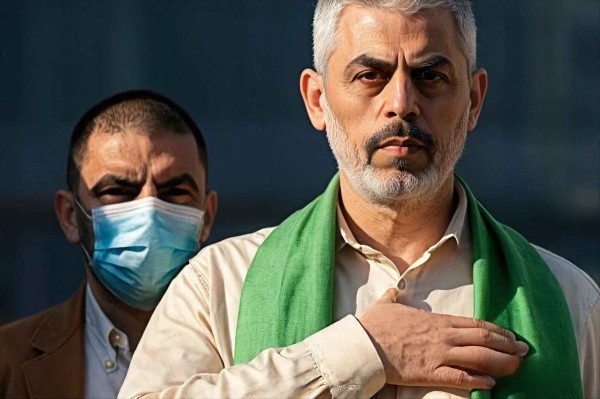Iran’s Plan to Strike Back Against the U.S.
Iran’s Military Preparations Following U.S. Attacks
Loading...

Hamas has yet to comment on Israeli army claims that forces killed the group’s leader in southern Gaza on Wednesday.
Overview of the Incident
On Wednesday, October 16, 2024, the Israeli military announced that it had killed Yahya Sinwar, the leader of Hamas, during an operation in southern Gaza. This claim was confirmed by Israeli officials on Thursday, although Hamas has yet to issue a statement regarding Sinwar's reported death. The Israeli military indicated that Sinwar was killed alongside three other militants during a targeted attack in Rafah, a city in southern Gaza, which has been a focal point of conflict in the region.
Sinwar had recently been appointed as the head of Hamas's political bureau, succeeding Ismail Haniyeh, who was assassinated in July. His leadership has been marked by significant tensions and violence, particularly following the October 7 attacks that escalated the ongoing conflict.
Reactions from Israel
Israeli Prime Minister Benjamin Netanyahu hailed Sinwar's death as a significant victory, stating that Israel has "settled its account" with the Hamas leader. He emphasized that while this was a crucial milestone, the war is not yet over, asserting that "light is prevailing over darkness" in the region.
Israeli Foreign Minister Israel Katz described the operation as both a "military and moral achievement," while Benny Gantz, chairman of the National Unity Party, congratulated the military for its success. Gantz stressed the importance of this achievement in the broader context of Israel's ongoing efforts to combat Hamas and secure the return of hostages.
Responses from Families of Israeli Captives
The Hostages and Missing Families Forum, an Israeli advocacy group, welcomed the news of Sinwar's death, expressing hope that it would facilitate the release of captives still held by Hamas. They urged Israeli authorities to leverage this development to secure the return of hostages.
International Reactions
United States
U.S. President Joe Biden characterized Sinwar's death as a moment of relief for Israelis and a potential turning point for Gaza. He noted that Sinwar had been a significant obstacle to peace and expressed his intention to discuss the situation with Israeli leaders, focusing on the return of hostages and the need to end the conflict.
Vice President Kamala Harris echoed Biden's sentiments, stating that justice had been served and expressing hope for an end to the war in Gaza. She highlighted Sinwar's responsibility for the deaths of many innocent people, including victims of the October 7 attacks.
Republican House Speaker Mike Johnson also praised the Israeli military's actions, describing Sinwar as "the embodiment of evil" and expressing hope for a future free from oppression.
European Perspectives
Germany's Foreign Minister Annalena Baerbock condemned Sinwar as a "cruel murderer and a terrorist," calling for Hamas to release all hostages taken during the October 7 attacks. French President Emmanuel Macron similarly demanded the release of all hostages, labeling Sinwar as the primary architect of the recent terrorist acts.
NATO chief Mark Rutte remarked that he would not miss Sinwar if the reports of his death were confirmed, reflecting a broader sentiment among Western leaders regarding the implications of his leadership.
United Kingdom
In the UK, Defence Secretary John Healey stated that he would not mourn Sinwar's death, emphasizing the significant impact of his leadership on the ongoing conflict and the suffering it has caused.
Conclusion
The reported death of Yahya Sinwar has elicited a range of reactions from various stakeholders, reflecting the complex and multifaceted nature of the Israeli-Palestinian conflict. While Israeli officials celebrate the development as a strategic victory, international leaders call for humanitarian considerations and the urgent release of hostages. The situation remains fluid, with significant implications for the future of Gaza and the broader region.
Editor
Iran’s Military Preparations Following U.S. Attacks
Troops remain in five strategic locations, raising fears of renewed tensions and long-term occupation.
Opposition forces have taken control of the capital after a significant offensive. Here is how it unravelled.
